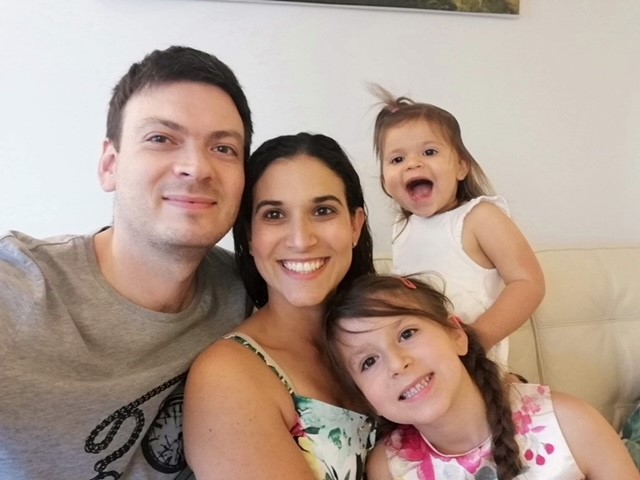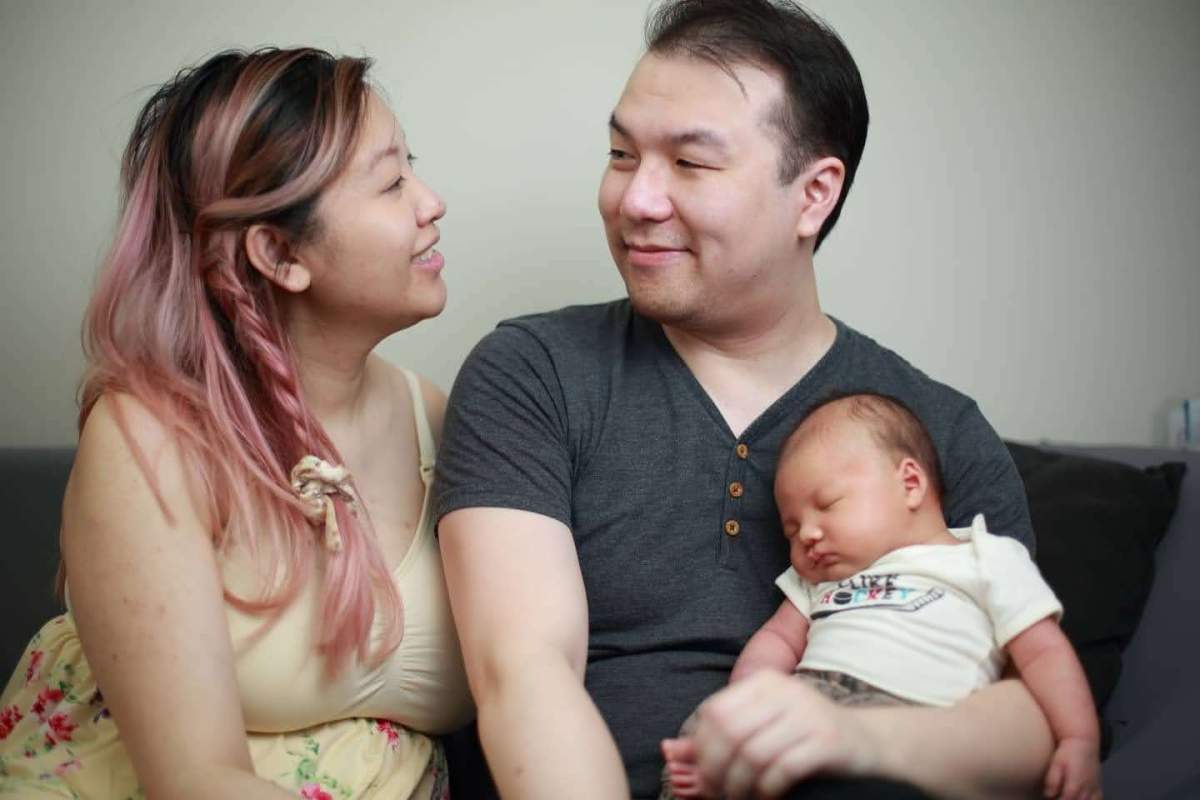When Toronto-based mom Diel Gerber was first pregnant, she thought ‘baby brain’ was just thing parents say, an excuse for their forgetfulness. But her tune changed after her second trimester.

“As I came closer to my due date, I realized it’s a real thing,” the mother-of-two told Global News.
“You try to remember a word you want to use or someone’s name and you blank,” Gerber said, explaining the symptoms lasted after both her children were born. “You feel like you are always misplacing something and you can’t recall the things that you were supposed to do.”

Dubbed ‘pregnancy brain’ ‘baby brain’ or ‘mom brain,’ it’s a frustrating side-effect of having a child for many parents. It often leads you to forget names, appointments and dates. It even leaves some people finding their keys in the freezer while others struggle with focus and find themselves in a fog.
A survey from June by U.S. polling company One Poll revealed the average American parent loses nearly 4,000 hours to that brain fog over the course of raising their child.
And while a lack of sleep and stress can contribute to that — for women, the changes are more permanent.
'BABY BRAIN' IS REAL
“It’s definitely a real thing,” said Jennifer Brooks, an associate professor of epidemiology at the Dalla Lana School of Public Health at the University of Toronto, speaking about baby brain.
Brooks said hormones related to pregnancy, childbirth and breastfeeding prompt changes in a woman’s brain.
“There is a tremendous shift physically and mentally that occurs during and following pregnancy that has a really significant cognitive and emotional burden on women,” she said.
Studies have confirmed pregnancy alters a woman’s brain, long-term.
In 2016, scientists found postpartum women had reductions in grey matter (the darker tissue of the brain, consisting mainly of nerve cells) in regions responsible for social cognition.
The study also revealed the reductions lasted for at least two years postpartum.
More recently, a study from early 2021 found they actually lasted much longer, at least six years after childbirth.
Liisa Galea, a professor of neuroscience at the University of British Columbia, has been researching this topic for years.
“People have found that you do see some sort of… I call it impairments in memory,” she said. “But it depends on the trimester of pregnancy…fetal sex…(and) type of memory.”
EFFECTS OF 'BABY BRAIN'
While it may be scary for moms to read about a loss of cognition, Galea said it’s not as worrisome as it may seem.
“Just because there’s a reduction doesn’t mean it’s necessarily associated with bad performance on any kind of task,” Galea said, “It just means a difference.”

Get weekly health news
In that 2016 study, Galea said those with the largest drop in grey matter — showed a particular maternal closeness with their baby.
“Moms are learning new skills…I would even call them superpowers,” Galea laughed. “When my son was born, I could distinguish all these different cries it and it got so good that…that’s a pretty amazing skill to to acquire.”
But while the brain is adapting, some mothers are left suffering.
Leena Mittal, a psychiatrist at the Brigham and Women’s Hospital in Massachusetts, spends her days working with pregnant and postpartum women.
“The majority of them will report some cognitive changes,” she said, “Usually it is mild and something that they can laugh off…but sometimes it can be really troubling.”
Mittal said the severity of ‘baby brain’ could also be related to factors such as sleep deprivation due to a newborn, stress or postpartum depression.
'BABY BRAIN' OR LATE-DIAGNOISED ADHD?
Some experts have also theorized the possibility, for some, baby brain may instead manifests as late-diagnosed attention deficit hyperactivity disorder, or ADHD.
Symptoms can include lack of attention, lack of concentration, disorganization, difficulty completing tasks, being forgetful, and losing things.
Mittal explained ADHD in girls is difficult to diagnose, as it often present differently than in boys. As a result, many women grow up without any diagnosis at all. Mittal also said women are often good at “managing” the disease.
But the stressor of birth and a new baby, Brooks explained, can often come as the ‘final straw’ and the symptoms of ADHD are no longer easily managed.
“These challenges might become more apparent when there are big life transitions and could even be further exacerbated by hormonal changes like going through menopause or through pregnancy or even through changes in the menstrual cycle,” she said.
Still, both Mittal and Brooks said there is much more to learn about ADHD, and specifically how it affects women.
COVID-19 PANDEMIC EXACERBAING 'BABY BRAIN'
Meantime, Mittal and Brooks said, parents and mothers in particular, are facing more pressure to maintain it all amid a global pandemic.
Mittal said ‘baby brain’ can make the expectation extremely stressful.
“Doing it all while concurrently doing work, school, child care, all at the same time. There’s no compartmentalization,” said Mittal. “That can certainly strain anybody and it does disproportionately impact women.”
Galea agrees.
“We know chronic stress, once you have enough of it, it will accumulate enough that it will impact memory,” she said. “The key is to find things that reduce your stress. And that’s just just common sense. Exercise, humour — anything.”
LIVING WITH 'BABY BRAIN'
First-time Vancouver mom, Suzi Au had her baby boy Lindon four months ago and said having a strong system and a way to stay organized has been helpful.
“There are days when I can’t keep really simple things straight that I normally would be able to” said Au. “Now I just put everything on my phone and make sure I write it in multiple places so I don’t forget right away.”
While Au is adapting to this cognitive change, she said she is surprised more healthcare providers don’t discuss ‘baby brain’.
“It doesn’t bother me, I guess … it’s more it’s just something that I’m used to now,” she said.
All the experts Global News spoke with agree more needs to be investigated when it comes to the maternal mind and women’s health in general.
In a study she co-published in 2019, Galea and her co-authors found evidence to suggest our brains actually improve as our postpartum journey continues.
“There’s some good evidence that perspective, memory and that sort of thinking about things in the future that you need to do are much better in the later on in life,” she said.
Caledonia, Ont. mom Libby Ward, who has a five and seven- year- old, said she still battles ‘baby brain’ daily.
“The mental load of motherhood, remembering everything for everyone all the time — I think sometimes it doesn’t leave space for… the very basic things,” she said.
Galea’s findings she said, are promising, “It makes sense, that once you don’t have as many responsibilities, our ability to remember things would come back.”
Galea, meantime, hopes more research will further prove there isn’t anything to fear when it comes to the changes in new parents’ brains.










Comments
Want to discuss? Please read our Commenting Policy first.